The conflicted history of Pope Francis’ LGBTQ+ comments: from ‘who am I to judge’ to ‘frociaggine’

Pope Francis has had a mixed legacy of discussing LGBTQ+ topics. (Getty/Canva)
What does Pope Francis, the head of the Catholic Church, really think about the LGBTQ+ community?
The Vatican is in hot water after Pope Francis is alleged to have recently used a homophobic slur during a meeting with bishops about allowing celibate gay men to train as priests.
In the behind-closed-doors meeting, the pontiff is believed to have said there was already too much “frociaggine” in seminaries, an Italian word which roughly translates as f****t.
The Vatican released an apology, insisting that the pope is a supporter of the LGBTQ+ community.
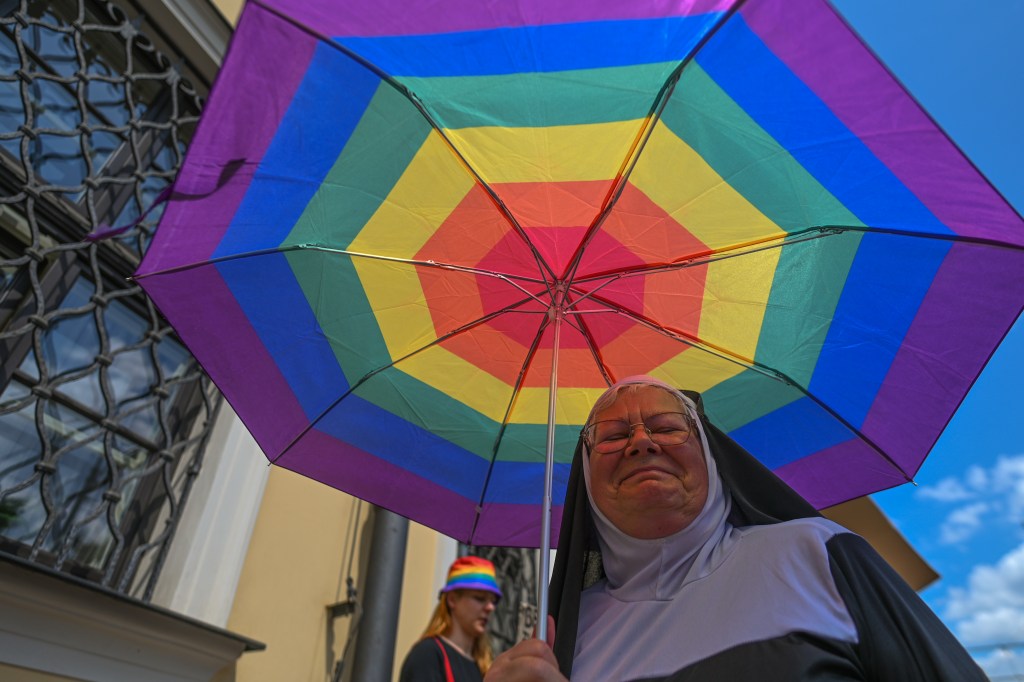
“As he stated on several occasions: ‘In the Church, there is room for everyone. Nobody is useless, nobody is superfluous, there is room for everyone. Just as we are, all of us’,” a spokesperson said.
“The pope never intended to offend or express himself in homophobic terms, and he apologises to those who felt offended by the use of a term reported by others.”
This recent controversy has reignited discussion about the religious leader’s tenure and his relationship with the LGBTQ+ community. So, what has Francis actually said about LGBTQ+ people in the past?
“Who am I to judge them?“
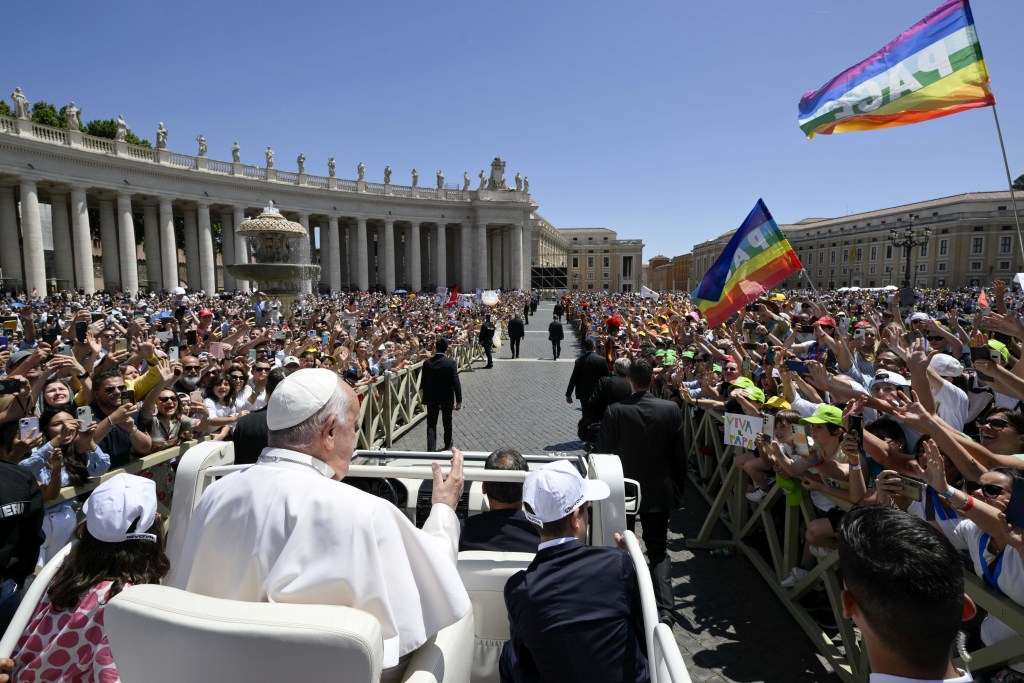
In 2013, the pope opened up a dialogue surrounding gay priests in what was a radical statement.
“If [gay priests] accept the Lord and have goodwill, who am I to judge them? They shouldn’t be marginalised. The tendency [same-sex attraction] is not the problem… they’re our brothers.”
However, he reiterated his support for Catholic Church’s universal catechism, which states that while being gay is not sinful, homosexual acts are.
“The catechism explains this very well. It says they should not be marginalised because of this, but that they must be integrated into society,” Francis said.
Trans people can be godparents
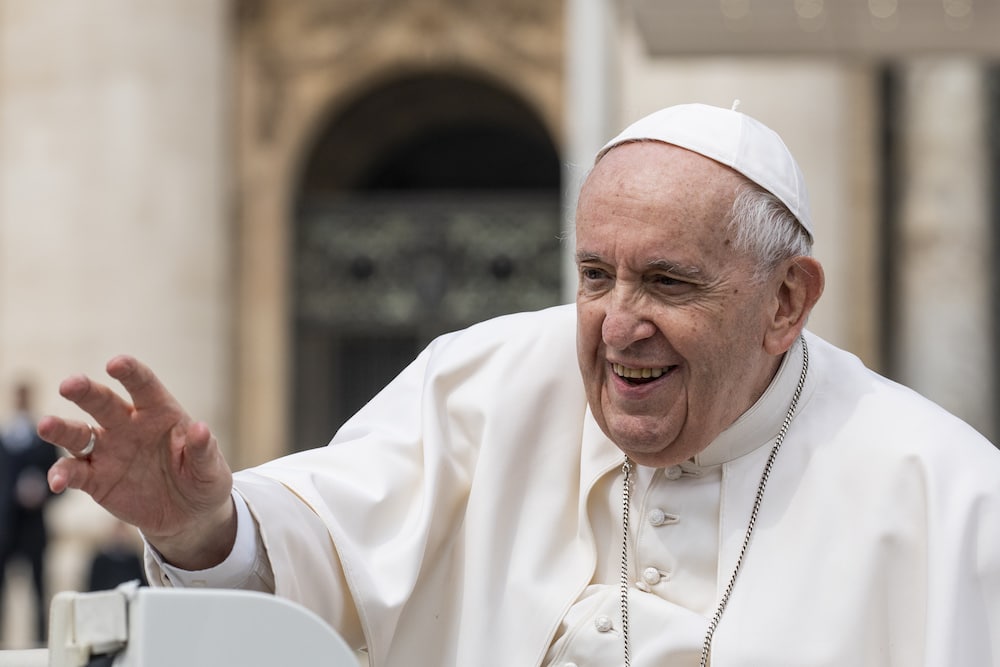
While 2013 marked a watershed moment for LGBTQ+ relations with the Catholic Church, a decade later the pope still vacillates between pro and anti-queer comments.
Just last year, Francis said trans people can take part in Catholic practices such as being baptised and acting as godparents or witnesses to marriage, under the same conditions as any other adult.
There was “nothing in current universal canonical legislation that prohibits” a transgender person, or any LGBTQ+ person, from serving as a witness at a Catholic marriage, he explained. However, a Vatican document, signed by the pope, highlights that for trans people, this is an honour not a right and should be avoided “if there is a risk of scandal, of undue legitimation or disorientation in the educational field of the ecclesial community”.
Nonetheless, this still marked a major stepping stone in the Church’s acceptance of transgender people.
Blessing same-sex unions
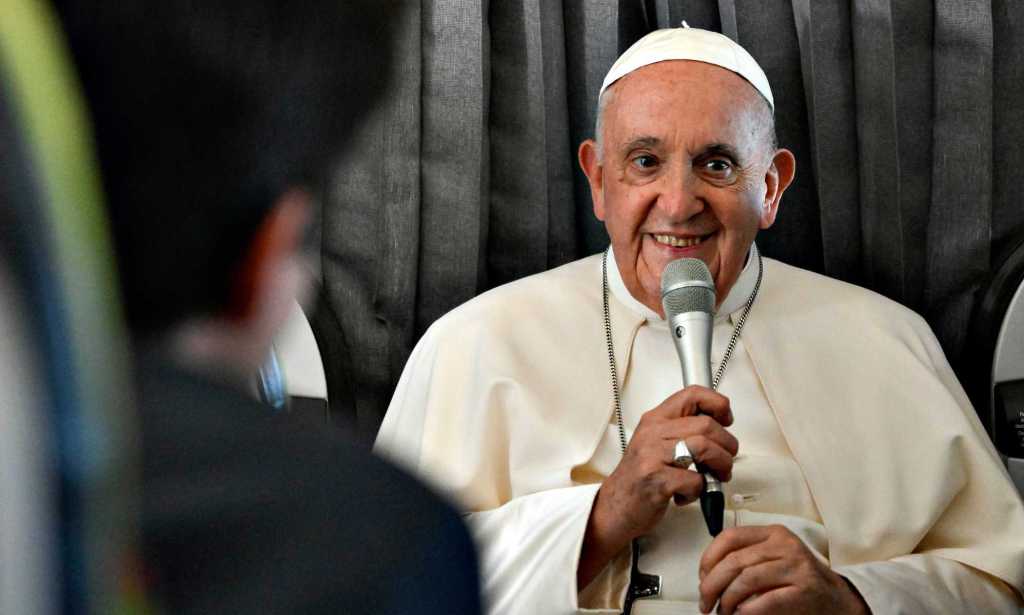
Late last year, in a reversal of the Church’s traditional stance, the pontiff – also known as the Bishop of Rome – announced that same-sex couples could have their unions blessed under certain circumstances.
But the Vatican also said that while same-sex couples could be blessed, such ceremonies should not be part of regular Church rituals or related to civil unions or weddings, and the Church continued to view marriage as between a man and a woman.
However, this message of acceptance marked a turning point for many LGBTQ+ Catholics.
In a letter explaining his stance, Francis said the clergy must use “pastoral prudence” and “pastoral charity” to guide their responses to same-sex couples who request a blessing.
GLAAD president and chief executive Sarah Kate Ellis hailed the decision as “both unprecedented and compassionate”.
Pope Francis will bless LGBTQ+ people but not their unions

A few months on from the news of the pope’s acceptance of same-sex union blessing, he clarified that he supported blessing LGBTQ+ people, but not their unions.
“That cannot be done because that is not the sacrament,” he explained. “To bless a homosexual-type union goes against the given right, against the law of the Church. But to bless each person, why not? Some people were scandalised by this. But why?”
Same-sex critics are hypocritical
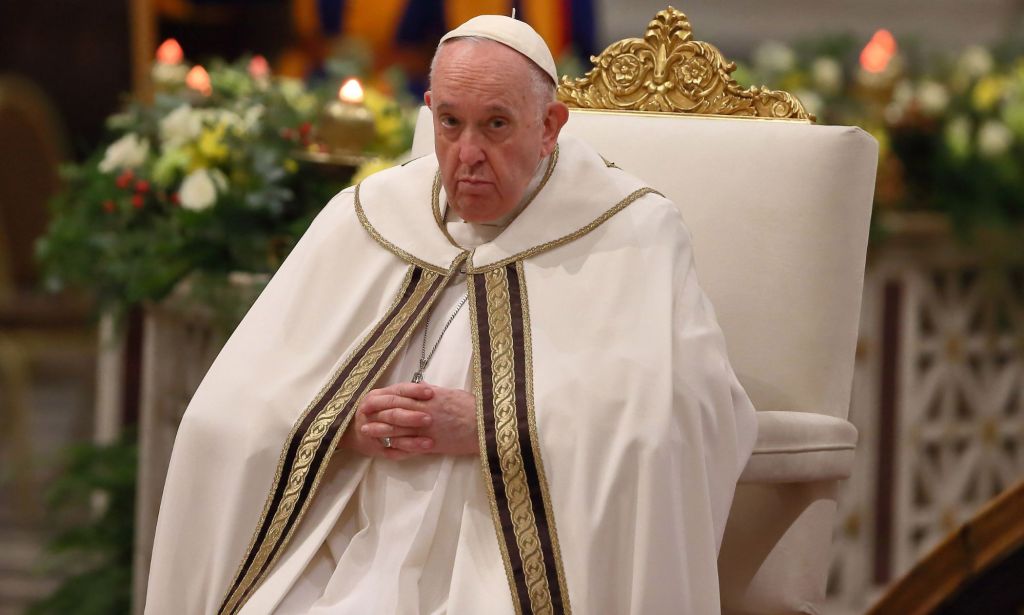
The pope has denounced the criticism of same-sex blessings. Commenting on the backlash from conservative bishops and dioceses, Francis believed those who disagree with the decision [were] showing “hypocrisy.”
According to Vatican News, the pope said: “I do not bless a ‘homosexual marriage’, I bless two people who care for each other, and I also ask them to pray for me.
He went on to say that the “gravest of sins” one could commit was not homosexuality, but being someone who “disguises themselves with a more ‘angelic’ appearance.
‘Gender ideology’ is ‘dangerous’
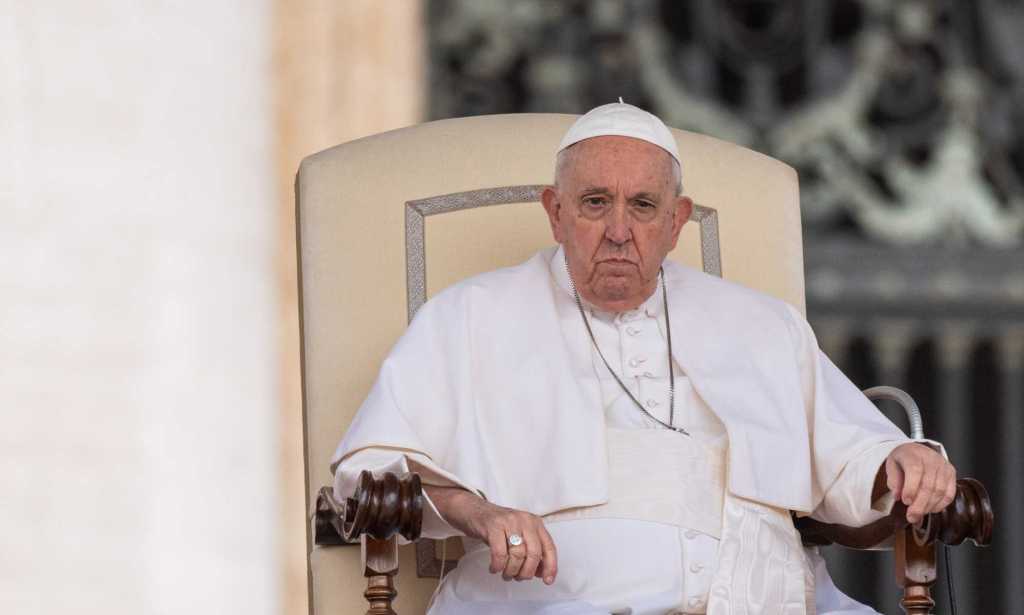
His stance on gender is somewhat different.
The pontiff has described so-called gender ideology as one of the “most dangerous colonisations.”
Little more than a year ago, he said it “goes beyond the sexual” and “the question of gender is diluting the differences and making the world the same, all dull, all alike”, adding: “Because it blurs differences and the value of men and women, [it] is contrary to the human vocation.
“[Gender ideology] eliminates differences, and that erases humanity, the richness of humanity, personal, cultural and social.”
Banning surrogate pregnancies
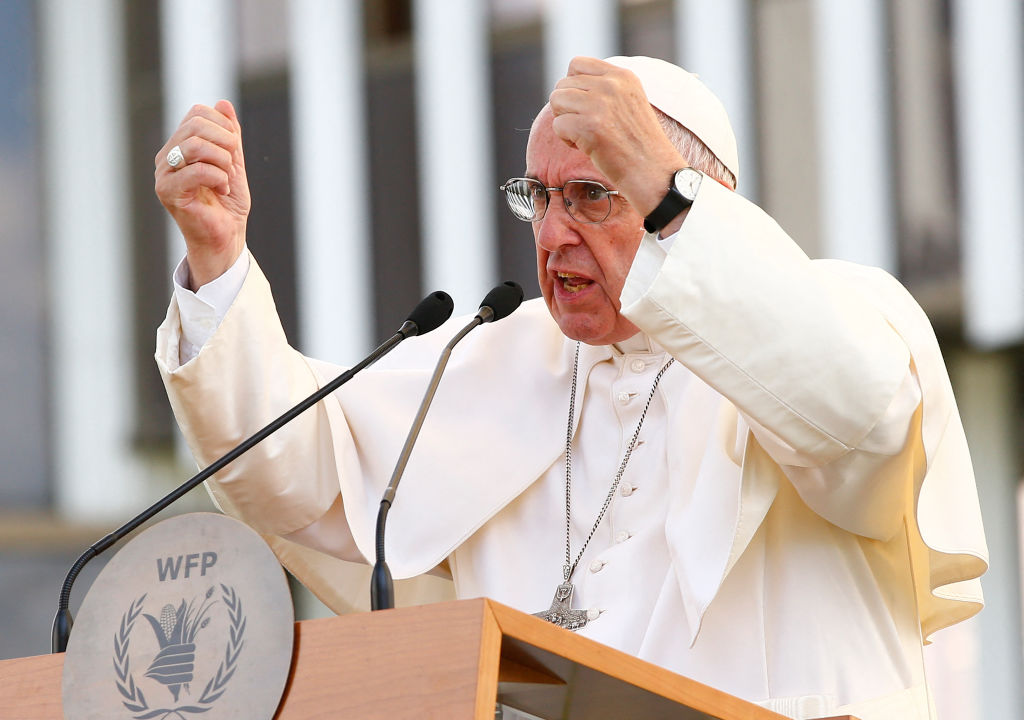
In 2008, the pope called for a blanket ban on surrogate pregnancies, describing them as “exploitation” and a “violation” of dignity.
“I deem deplorable the practice of so-called surrogate motherhood, which represents a grave violation of the dignity of the woman and the child, based on the exploitation of situations of the mother’s material needs,” he said.
“Consequently, I express my hope for an effort by the international community to prohibit this practice universally.”
Welcoming trans people to the Vatican
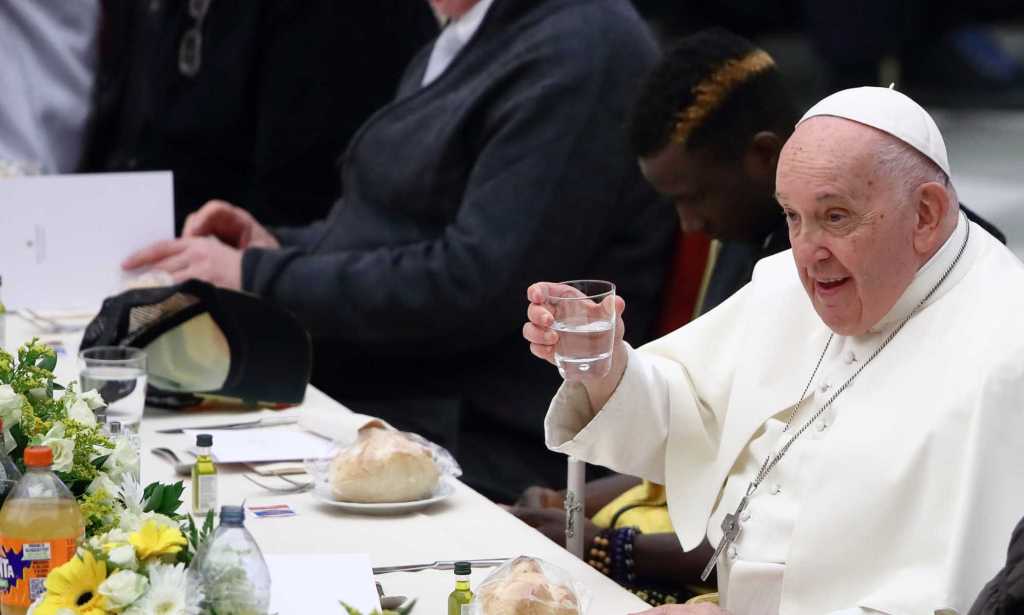
Last year, Francis welcomed trans women, along with 1,000 poor and homeless guests, to a Vatican lunch to mark the Catholic Church’s World Day of the Poor.
Trans former sex worker Claudia Vittoria Salas was seated at the same table as the pope.
He also met with a trans group in the Vatican in 2022. Sister Genevieve Jeanningros and local priest Andrea Conocchia reportedly said the meetings had given the group hope.
Sacking a conservative bishop over LGBTQ+ inclusion

Last year, in a move seen as aligning the pope as an LGBTQ+ ally, he “relieved” Bishop Joseph Strickland, from eastern Texas, of his position as head of the Diocese of Tyler.
The decision came after Strickland said Francis was “undermining the deposit of faith” and was a “diabolically disordered clown”.
Strickland had also criticised the pope’s moves to make the Church more welcoming for LGBTQ+ Catholics, describing the plan as a “travesty.”
How did this story make you feel?

